An experiment to demonstrate thatlemon juice keeps slices of apple fresh |
|
|
Principle |
|
Almost all plants contain polyphenol oxidase, and it is believed that plants use this enzyme as part of their defense mechanism.
|
|
When a plant is damaged, the browning of the affected area is thought to discourage animals and insects from eating the plant any further.
|
|
It also might help the plant heal because the browning creates an antibacterial effect, preventing germs from destroying the plant even more.
|
|
Lemon juice helps to keep the apple from browning, because it contains ascorbic acid (Vitamin C) and it has a low (acidic) pH level.
|
|
Ascorbic acid reacts with oxygen before it reacts with the polyphenol oxidase.
|
|
However, once the ascorbic acid gets used up, the oxygen will start reacting with the enzyme and browning will occur.
|
|
Lemon juice's low pH level also helps prevent browning.
|
Materials Required |
||
|
- An apple
|
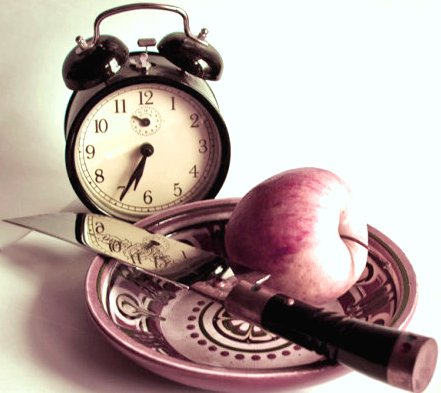 |
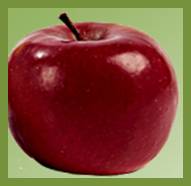 |
|
- Sharp knife
|
||
|
- Lemon juice
|
||
|
- Clock
|
||
Procedure |
|
Cut the apple in half from top to bottom.
|
|
On one apple half, lightly coat the white part of the apple with lemon juice.
|
|
Leave the other half uncoated.
(The uncoated half is your "control" sample and lets you see what normally happens to a cut open apple)
|
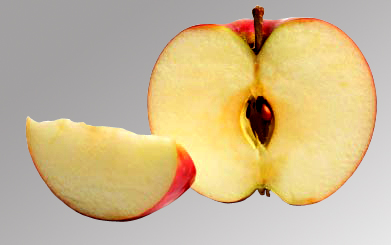 |
|
Observe the colour of both the apple halves, then place them white-part-up on a counter or tabletop.
|
|
Observe the apples again after 30 minutes. Notice any colour change and/or difference in appearance.
|
|
Look at the apples again periodically throughout the day. What do you find?
|
Observation |
|
When an apple is cut open, an enzyme called polyphenol oxidase is released from the cells of the apple and reacts with the oxygen in the air.
|
|
This reaction causes the fruit to turn brown, similar to rust forming on metal.
|
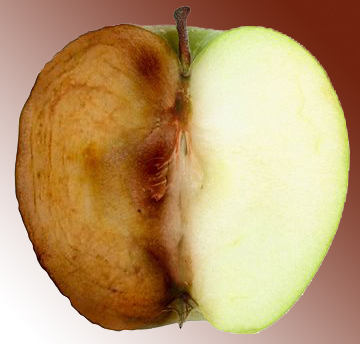 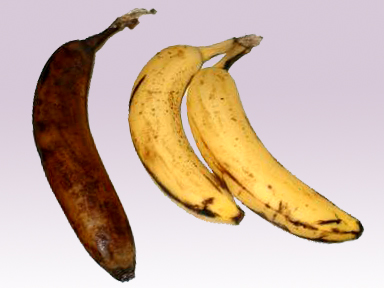 |